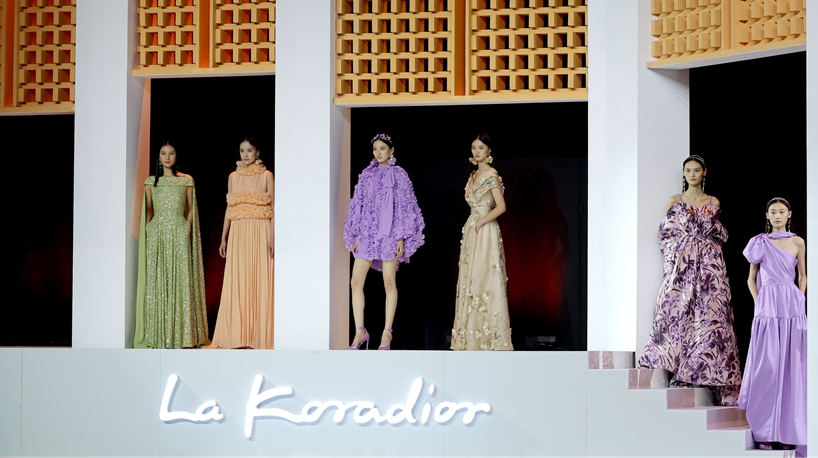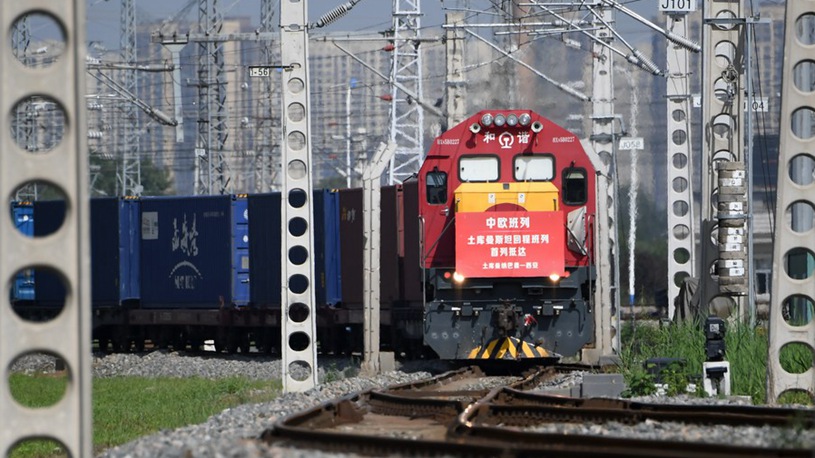UNGA opens at a 'watershed moment'; China to push concrete, result-oriented cooperation while US, West 'seek division'
After more than two years of global COVID-19 restrictions, global leaders started to gather in New York to attend the United Nations General Assembly on Tuesday, where they are scheduled to address urgent global crises. However, analysts warned that political clash on the General Assembly could be particularly fierce this year, as the US and some Western countries continue piling on the pressure to divide the world with so-called democratic and ideological values, while China and vast developing countries are seeking to tackle global concerns.
This year's theme for the general debate is "A watershed moment: transformative solutions to interlocking challenges." More than 150 heads of state and representatives of governments plan to deliver speeches from Tuesday through Sunday on issues of global concern, media reported.
Warning that the world is in "great peril," António Guterres, secretary-general of the United Nations, said on Tuesday that leaders meeting in person for the first time in three years must tackle conflicts and climate catastrophes, increasing poverty and inequality — and address divisions among major powers that have gotten worse since the Russia-Ukraine conflict.
Call for solidarity
Stressing the world is facing widening geopolitical divides and protracted uncertainties, the newly elected President of the General Assembly Csaba Korosi listed challenges that confront the whole world, including climate change, COVID-19's continuous havoc, acute food insecurity, soaring energy prices, global supply-chain disruption and humanitarian upheavals created by conflicts.
Ranging from the COVID-19 pandemic to the mission on economic recovery and heated regional issues, Csaba addressed urgent issues that call for joint efforts by the international community and the solidarity of all UN members states to discuss and solve them during this year's UN General Assembly, Diao Daming, an associate professor at the Renmin University of China in Beijing, told the Global Times.
However, as for how to solve these problems, the US and some Western countries are going astray - they are creating small clique to maximize their own geopolitical interests, increasing friction and sowing discord to impede other countries' cooperation, Diao noted.
US President Joe Biden will reportedly make his address on Wednesday and US media reported that he is expected to reassert US global leadership and rally allies to continue sanctioning Russia and counter China's rise.
According to an article from Politico on September 16, Biden's aides have worked for weeks on his speech to the UN as they view it "as the latest in a series of high-profile opportunities" for Biden to place the battle in Ukraine into his larger view that the "next century will be defined by the battle between democracies and autocracies."
Britain's new Prime Minister Liz Truss will also deliver a speech to the UN on Wednesday and is expected to say that the UK will remain "an active defender" of democratic values against "authoritarian foes," the AFP reported.
The US and some Western countries are attempting to manipulate the UN platform to marginalize and smear Russia over its conflict with Ukraine, and they are seeking to strip Russia of its veto in Security Council resolutions by pushing for UN reforms, some analysts said, noting that hyping rumors and disinformation on human rights during the UN General Assembly are tactics used by the US and some Western forces to smear China.
The US and its Western allies are dividing the UN and the world into different groups of so-called democracies and autocracies and pulling countries into small cliques driven by ideology. They also imposed unilateral sanctions that have destabilized the global supply chain and pressured other countries to choose sides. Moreover, the US is turning the Ukraine crisis into an opportunity for its own interests, which has created a bigger global crisis, Sun Chenghao, a fellow from the Center for International Security and Strategy of Tsinghua University, told the Global Times.
In contrast, China, together with more countries, are promoting true multilateralism and seeking solutions to issues of global concern, Sun said, noting that for example, China's proposals on global security and global developments, which fit the needs of the majority of the countries, offer China's approach to global sustainable development.
After the opening of the 77th session of the General Assembly, Zhang Jun, China's ambassador to the UN tweeted that the world is in a state of change and chaos, and the UN is also standing at a crossroads. At this moment, we need confidence, wisdom, unity, and more importantly, we need to practice genuine multilateralism and jointly safeguard the purposes and principles of the Charter, Zhang said.
China's State Councilor and Foreign Minister Wang Yi is scheduled to attend the General Debate of the 77th session of the UN General Assembly. On Tuesday, Ambassador Zhang Jun tweeted that Wang has arrived in New York and started his bilateral and multilateral activities.
According to China's Foreign Ministry on Tuesday, after his arrival in the US, Wang held meetings with Cuban Foreign Minister Bruno Rodriguez, Pakistani Foreign Minister Bilawal Bhutto Zardari, French Foreign Minister Catherine Colonna, Ethiopian Deputy Prime Minister, Foreign Minister Demeke Mekonnen and former US secretary of state Henry Kissinger.
Wang's activities highlight China's adherence to building the community with a shared future for mankind. Unlike the US-led small cliques, China is pushing concrete and result-oriented cooperation with the purpose to promote mutual developments, Diao from the Renmin University said.
On the sidelines of the General Debate, Wang will attend a series of multilateral meetings, including a ministerial meeting of the Group of Friends of the Global Development Initiative and will have bilateral meetings with the UN Secretary-General, and the President of the 77th session of the General Assembly, according to the Chinese Foreign Ministry.
While the US and some Western countries are stubborn to turn the UN General Assembly into a platform to amplify their narrative against countries they deem as rivals, especially Russia and China, majority countries oppose the US weaponizing the UN platform, which means a fierce battle would be staged in the following week, an anonymous Beijing-based expert said.
More countries, especially the majority of developing countries, want the General Assembly to focus on major global issues to help with their urgent development needs. They have seen through the hypocrisy of the US and its allies who clamor for democratic values, which is why the US and its allies' plans to politicize the UN platform will meet more opposition, the analyst said.
Photos
Related Stories
- UN General Assembly holds special session on Ukraine
- UN General Assembly president makes solemn appeal for Olympic Truce during Beijing Games
- Senior Chinese diplomat meets UNGA president via video link
- UNGA president, Danish FM, Swiss VP to visit China
- Xi's speech at general debate of 76th Session of UN General Assembly published
Copyright © 2022 People's Daily Online. All Rights Reserved.









